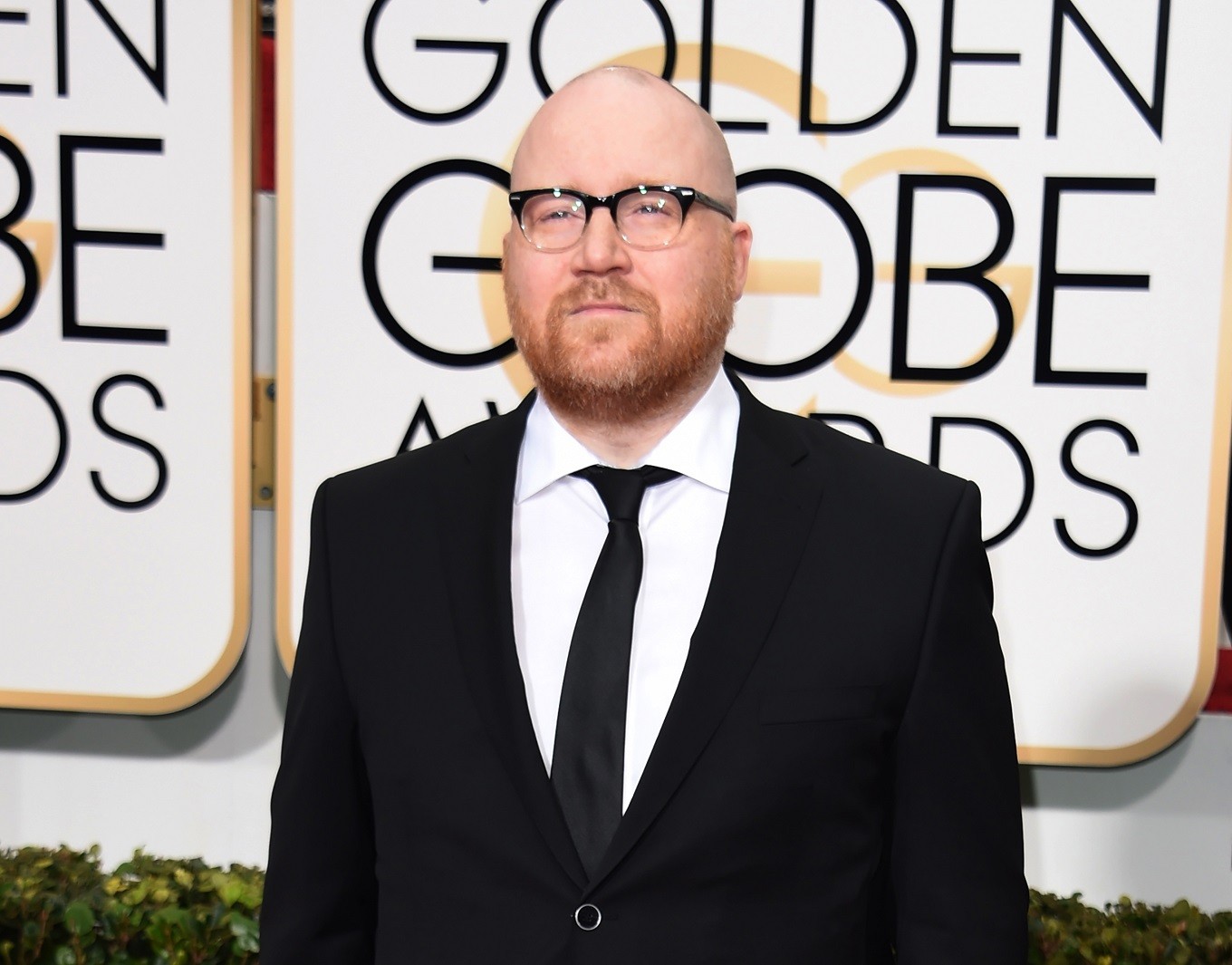Popular Reads
Top Results
Can't find what you're looking for?
View all search resultsPopular Reads
Top Results
Can't find what you're looking for?
View all search resultsJohann Johannsson, composer of haunting film scores, dead at 48
Change text size
Gift Premium Articles
to Anyone
 In this file photo taken on January 11, 2015 composer Johann Johannson arrives for the 72nd Annual Golden Globe Awards in Beverly Hills, California. Johannson, the award-winning Icelandic composer whose haunting yet minimalist scores instilled depth in arthouse films, has died, his manager announced on February 10, 2018. He was 48. Johannson was found dead February 9 in his apartment in Berlin where authorities were investigating the cause of death, said Tim Husom, his Los Angeles-based manager. (AFP/Mark Ralston)
In this file photo taken on January 11, 2015 composer Johann Johannson arrives for the 72nd Annual Golden Globe Awards in Beverly Hills, California. Johannson, the award-winning Icelandic composer whose haunting yet minimalist scores instilled depth in arthouse films, has died, his manager announced on February 10, 2018. He was 48. Johannson was found dead February 9 in his apartment in Berlin where authorities were investigating the cause of death, said Tim Husom, his Los Angeles-based manager. (AFP/Mark Ralston)
J
ohann Johannsson, the award-winning Icelandic composer whose haunting yet minimalist scores instilled depth in films full of abstraction, has died, his manager announced Saturday. He was 48.
Johannsson was found dead Friday at his apartment in Berlin, where authorities were investigating the cause of death, said Tim Husom, his Los Angeles-based manager.
"I'm so very sad. Today, I lost my friend who was one of the most talented musicians and intelligent people I knew," Husom said in a statement.
Johannsson, who blended classical form and electronic instrumentation, had become an increasingly in-demand musician for directors whose films probed more theoretical ideas.
He won the Golden Globe for Best Original Score for "The Theory of Everything," about physicist Stephen Hawking.
Johannsson was nominated again for "Arrival," for which he altered human voices to create amorphous, otherworldly sounds to dramatize the story of a linguist seeking to communicate with an extraterrestrial visitor.
He scored several films out in 2018, including "Mary Magdalene," a biblical drama about the much-debated female follower of Jesus.
While Johannsson won acclaim outside of the film world as an avant-garde composer, he was careful never to make his music needlessly convoluted or overbearing.
He kept strong, repeated melodies and said that many movies had far too much music, not allowing silences that were also crucial.
"I think my music is a way of communicating very directly with people and with people's emotions. I try to make music that doesn't need layers of complexity or obfuscation to speak to people," he told the online interview magazine The Talks in 2015.
- 'Always pushing boundaries' -
Daniel Pemberton, the composer for films including Danny Boyle's biopic "Steve Jobs," said he sat transfixed when he heard Johannsson's music for "Sicario," which showed "you could still do something radically new in mainstream film music."
"He was always pushing the boundaries, creating works of art so unique and exciting it becomes hard to imagine they didn't exist before," Pemberton wrote on Twitter.
The experimental DJ Flying Lotus tweeted that he was in "disbelief" over his death, calling Johannsson a major influence and hailing his score for the new thriller "Mandy."
Growing up in Reykjavik, Johannsson said he listened to everything from John Philip Sousa marches to deafening shoegaze rockers The Jesus and Mary Chain, but was transformed when he discovered ambient music pioneer Brian Eno.
Read also: Dissecting 'Dunkirk's excellence in sound design
Largely self-taught as a musician, Johannsson studied literature and took inspiration from the French Oulipo school of writers such as Georges Perec who aimed to stir up fresh ideas by imposing constraining rules on their compositions.
Johannsson co-founded Kitchen Motors, the influential Icelandic artist collective that also helped launch experimental rockers Sigur Ros, and in 2002 released his first album, "Englaborn," set to a theatrical piece.
- Strings about computers -
His most ambitious albums included "IBM 1401, A User's Manual," inspired by the early mass-manufactured computer.
Johannsson's father, a programmer in 1960s Iceland, had playfully transformed the computer into a musical instrument by making reel-to-reel recordings.
Turning the concept of computerized music on its head, Johannsson made his ode to the clunky old computer fully human by writing for a 60-piece string orchestra.
He again brought in strings for the mournful melodies of his 2008 album "Fordlandia," inspired by Henry Ford's disastrous project to build a city for rubber plant workers in Brazil.
Johannsson in 2016 signed a record deal with leading classical label Deutsche Grammophon and released "Orphee," an exploration of portrayals of Orpheus, the legendary bard of music, from ancient Greece onward.
Johannsson had little sign of slowing down and was recently announced on the lineup of Barcelona's Primavera Sounds festival.
"Arrival" was Johannsson's third film collaboration with Denis Villeneuve, although the French Canadian director surprisingly replaced him for last year's anticipated sci-fi sequel "Blade Runner 2049."










